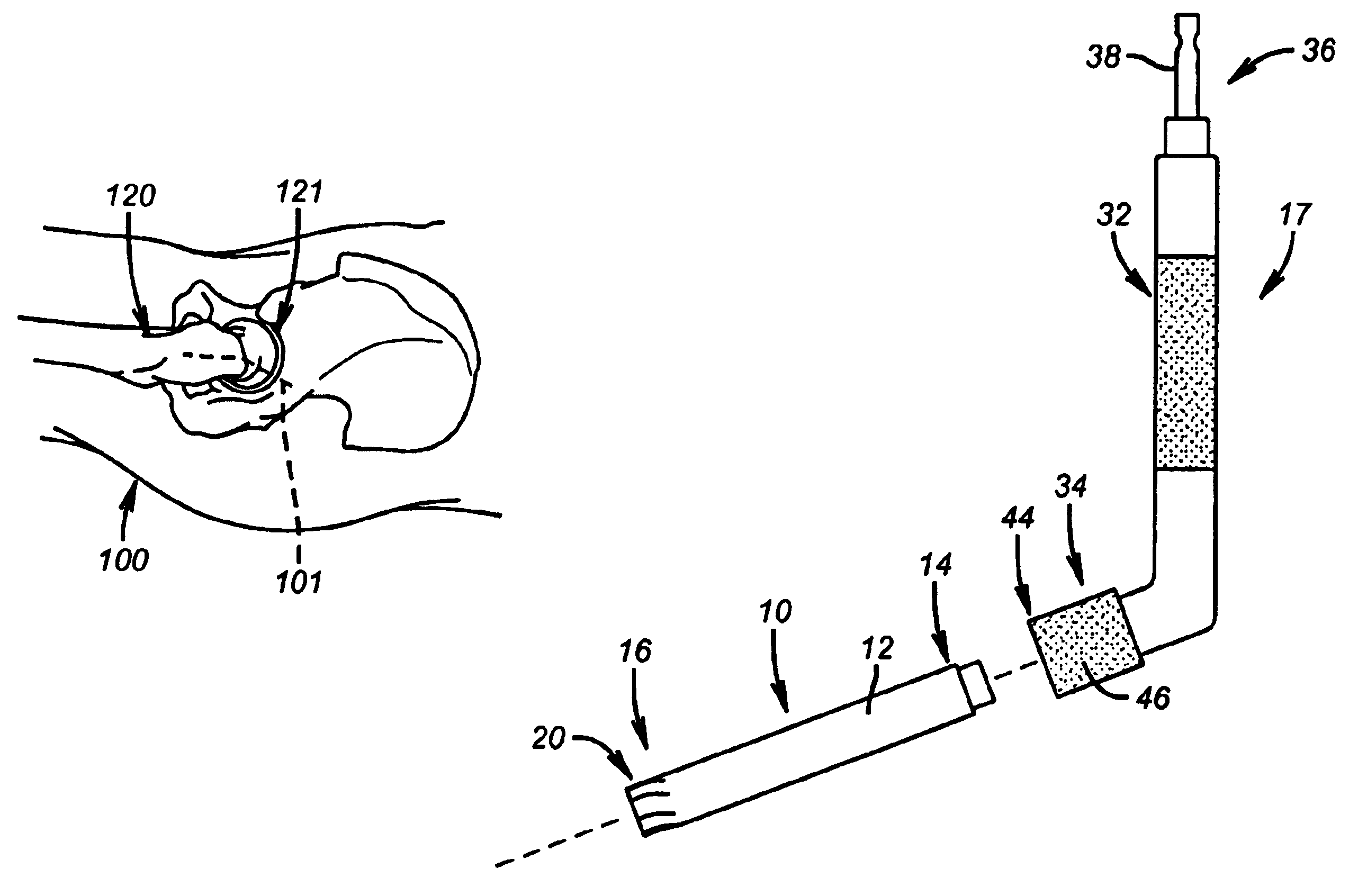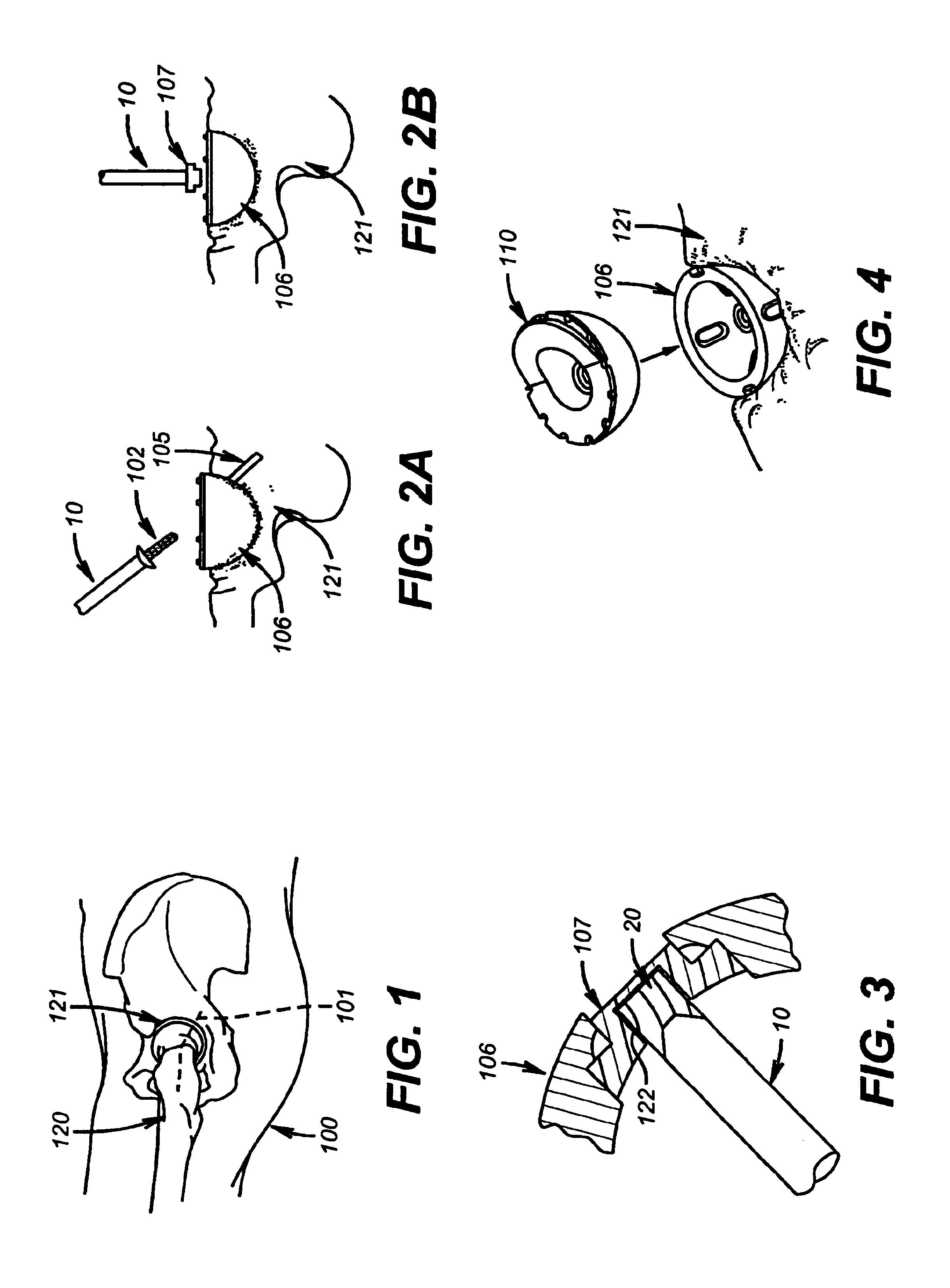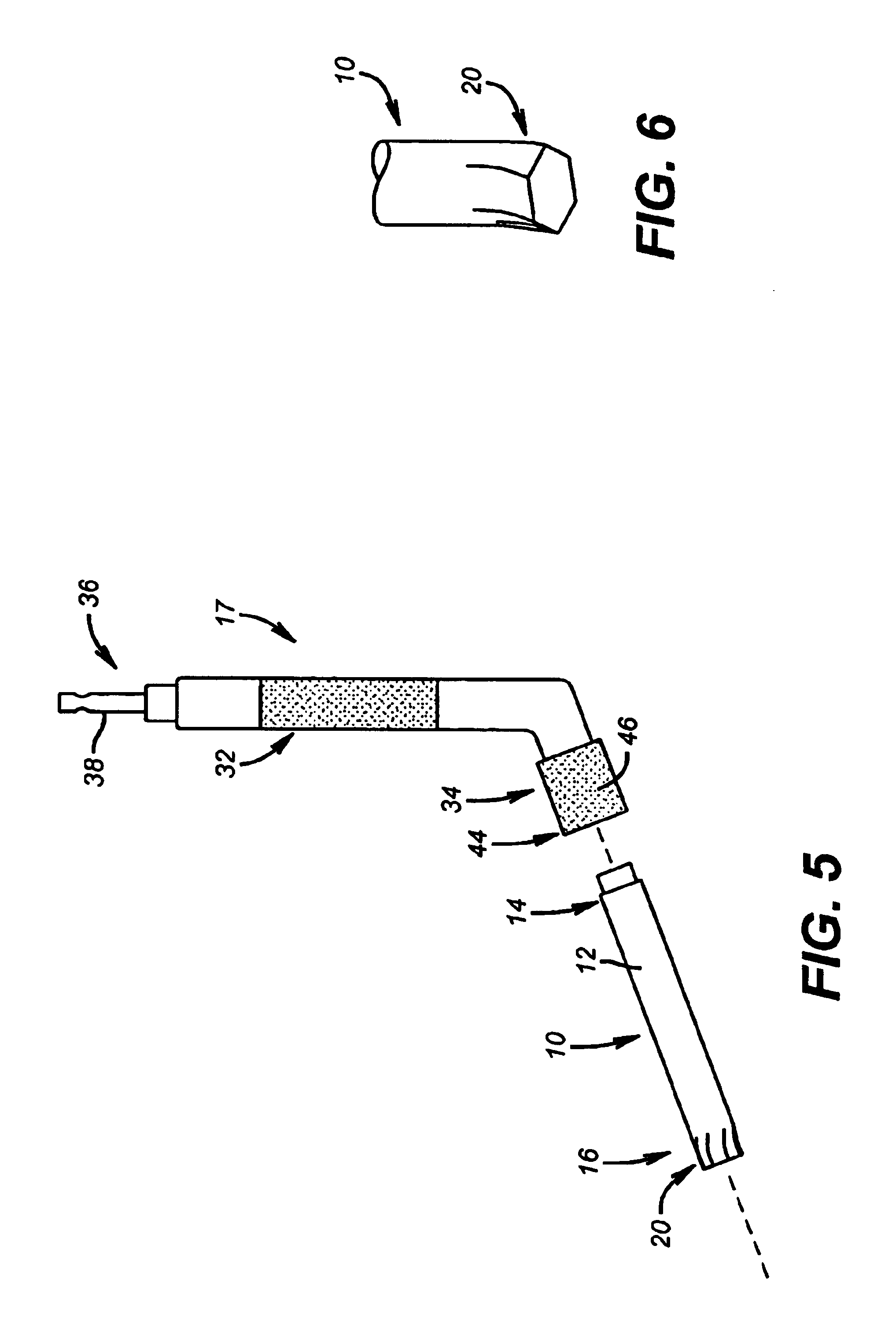Elongated driving bit attachable to a driving instrument and method of use for minimally invasive hip surgery
a driving bit and driving instrument technology, applied in the field of elongated, can solve the problems of increasing the cost of patient rehabilitation, and increasing the damage to the hip joint and surrounding soft tissue, so as to reduce the cost of both patient and hospital. , the effect of shortening the incision and reducing the cos
- Summary
- Abstract
- Description
- Claims
- Application Information
AI Technical Summary
Benefits of technology
Problems solved by technology
Method used
Image
Examples
Embodiment Construction
The instruments, method, and steps of the present invention are now described in more detail. The method describes the steps to perform a minimally invasive surgery to implant a prosthetic acetabular component into the natural acetabulum of a patient while using an elongated driving bit connected to an angled driving instrument. Some of these steps described in the method are known to those skilled in the art and will not be discussed in great detail. Further, one skilled in the art will appreciate that certain steps may be altered or omitted while other steps may be added without departing from the scope of the invention. The novel steps of the present invention, for example, can be applied to total hip arthroplasty, to revision surgeries for total and partial hip replacement, and to other orthopedic hip surgeries using minimally invasive surgical techniques.
To facilitate a discussion of the present invention, the method of implanting a prosthetic acetabular component is divided in...
PUM
 Login to View More
Login to View More Abstract
Description
Claims
Application Information
 Login to View More
Login to View More - R&D
- Intellectual Property
- Life Sciences
- Materials
- Tech Scout
- Unparalleled Data Quality
- Higher Quality Content
- 60% Fewer Hallucinations
Browse by: Latest US Patents, China's latest patents, Technical Efficacy Thesaurus, Application Domain, Technology Topic, Popular Technical Reports.
© 2025 PatSnap. All rights reserved.Legal|Privacy policy|Modern Slavery Act Transparency Statement|Sitemap|About US| Contact US: help@patsnap.com



